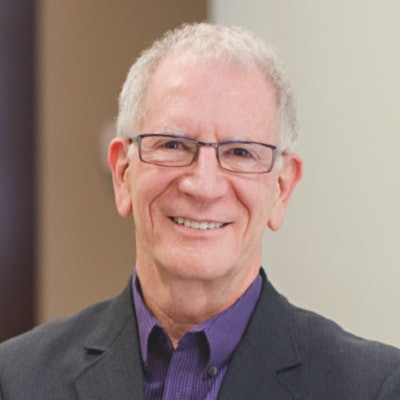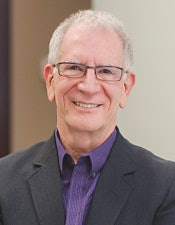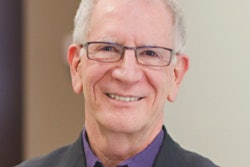
Statistically, we might be living longer in the U.S. today than ever before, but we are developing chronic diseases that significantly interfere with the quality of our golden years. You've probably seen this in some of your long-term patients; they are in distress and pain for decades before succumbing to one of these chronic diseases. This is not the way the human body was designed or evolved to be.
We were not born deficient in prescription drugs. We were not born to have to go to the physician every year to stay healthy or to see a dentist twice a year to prevent and treat gum disease and cavities. We were not born to require supplements of vitamins, minerals, and other nutrients for our bodies to function properly.
We were born to be healthy. We were born to retain our adult teeth throughout our lives until we die. We were born to move and jump and run and exert our bodies. We also were born to have pleasure and relax with nature.
4 pillars
 Alvin Danenberg, DDS.
Alvin Danenberg, DDS.When my patients come to me with some of these issues, I ask them to imagine sitting on a four-legged dining room chair and to notice what happens. They are comfortable and stable. Now what would happen if one leg suddenly were removed? They'd topple over.
Then I ask them what would happen if two legs were removed? Then, if a third leg was taken away? My point is that we need all four legs of this chair to give the support we need. A healthy, productive body needs stability too.
The mouth is an extension of a functioning body, not an island unto itself. Our mouth is intricately and intimately connected to everything that happens to each cell.
Just as there are four legs to this dining room chair, I tell my patients that there are four pillars to a healthy person:
- Nutrient-dense real foods
- Restorative sleep
- Efficient exercise
- Stress reduction
Chronic disease occurs when one or more of these are broken.
1. Nutrient-dense real foods
These provide the energy sources that every cell in the body needs to do its thing. These foods consist of wild-caught and free-range animal products, all vegetables, some densely colored fruits, as well as nuts and seeds in moderation. These foods also support good gut bacteria, which are critical for health.
2. Restorative sleep
Restorative sleep allows important systems of the body to replenish. Our bodies need at least seven to eight hours of sleep every night, ideally in a quiet, cool, dark space. I have to remind many of my patients that their body can't function properly if they try to catch up on sleep over the weekend. That's not how it works.
3. Efficient exercise
Efficient exercise helps maintain and build a body with the least amount of effort for the maximum effect. I give my patients some ideas and references and refer them to a physical trainer or other professional.
I also talk with my patients about nonexercise movement throughout the day. This involves standing as much as possible and sitting as little as possible. Walking is good movement, and I suggest they set a realistic goal to strive for each day in terms of a step count and use a pedometer of some sort to record their steps.
4. Stress reduction
Stress reduction includes the removal of toxins from internal and external sources, as well as removal of psychological stresses. Stresses from any source are toxic to all cells and eventually to all organ systems. As these stressors build up in the body to overload the system, clinical manifestations can appear like the proverbial straw that broke the camel's back. These manifestations of toxic overload frequently are expressed differently for each individual.
I remind my patients that our bodies are designed to be finely tuned machines and that these four pillars can help create both longevity and quality of life.
A version of this column first ran on Dr. Danenberg's blog. DrBicuspid.com appreciates the opportunity to reprint it. His book Crazy-Good Living from Elektra Press is available here.
Alvin Danenberg, DDS, practices at the Bluffton Center for Dentistry in Bluffton, SC. He is also on the faculty of the College of Integrative Medicine and created its integrative periodontal teaching module. He also spent two years as chief of periodontics at Charleston Air Force Base earlier in his career. His website is drdanenberg.com.
The comments and observations expressed herein do not necessarily reflect the opinions of DrBicuspid.com, nor should they be construed as an endorsement or admonishment of any particular idea, vendor, or organization.


















